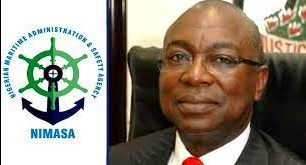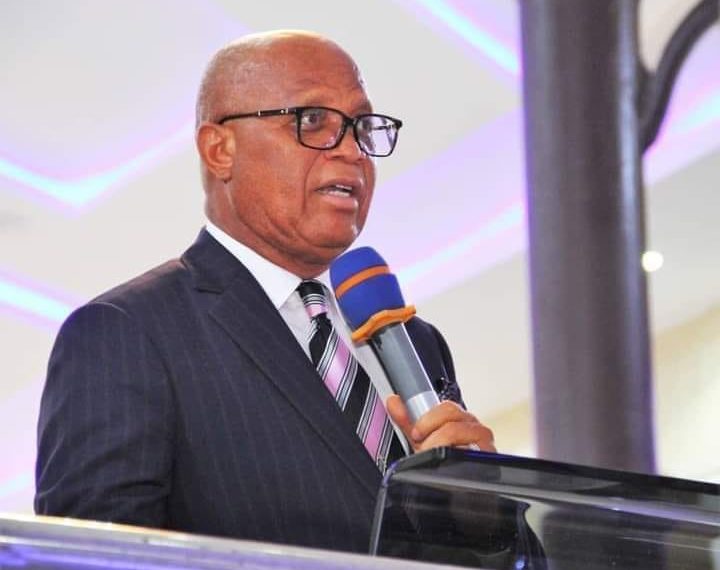 Eluonye Koyegwuaehi
Eluonye Koyegwuaehi
10 January 2014, Sweetcrude, Lagos – Since November 1, 2013 hand over of the assets of the defunct Power Holding Company of Nigeria (PHCN) to new owners, there have been worries about the direction and focus of industrial relations practice in the new dispensation. Director-General of Nigeria Employers’Consultative Association (NECA), an industrial practitioner of high repute, Mr. Olusegun Oshinowo, recently held an interactive session with a cross section of journalists on how to promote industrial peace in the sector.
In his opening remarks, the Director-General noted that the courage and determination to privatise the octopus called PHCN needed to be commended and praised President Goodluck Jonathan for the political will.
According to him, the government had “done very well on that but as far as the Nigerians are concerned the success of the privatisation should be rightly measured by regularity of electricity. As far as Nigerians are concerned, the success of the reform in the electricity sector should be measured and rightly so by regularity or stability of electricity. We can excuse the private owners because it is still early days. It is not unusual for them to have hiccups and challenges that will come with any transition. I believe that it is a question of time before we start enjoying the benefits of the reform. That is where we have a little bit of concern. We are talking of promise and prospects rather than reality, those are two different things. The reality to Nigeria is that right from day one, let there be improvement in power supply. But we will be asking for too much. The prospects and promises that somewhere down the line we should be able to have regular electricity supply, but if we are going to have regular electricity supply somewhere down the line, it is quite possible that it could bear a hope that may not materialise. The belief is that private sector is far more effective and efficient than the public sector. That is one of the reasons that informed the transformation, that if we have got it right with the telecommunication, if we have got it right with pension and management and administration issues are in the hands of the private sector, then the same formula should work for the electricity. Ordinarily, it should but it will only happen that way if we make sure that all the variables, all the key factors and parameters that have to be tended are actually tended to. What do I mean by that? Now the physical assets have been handed over to the new owners. From a dispensation where we have one octopus employer, we now have probably close to 20-25 different employers, different entities. In which case, the dispensation has changed.”
“We are talking of multiplicity of employers as against just one monolithic employer which is good. But we must realise that in the old dispensation, they have their culture, their traditions, their practice and their system. Those are things that you cannot change overnight and those things are paramount to the realisation of the hope of regular supply of electricity. I will not go into the entirety of what those issues and variables are, I will just mention one. This has to do with the industrial relation practice and system in the electricity sector. We believe that if that variable is not handled with professionalism, if that variable is not accorded attention, if that variable is not given premium, it can undo whatever benefit we are all hoping for under this new dispensation of privatisation. Remember we have moved from a dispensation where one big union was talking to one big employer, now we are in a dispensation where you still have one big union representing the interest of all the employees in the electricity sector and you have several employers not only several employers but new employers in the business. Now they require the human asset to work on the physical asset so that we can have regular electricity.”
“These are big issues that nobody is talking about. As far as the Bureau of Public Enterprises (PBE) and the National Electricity Regulatory Commission (NERC) are concerned, they have done the needful in terms of privatising the physical assets. I have not seen in their template, the reform plan for industrial relations. The human asset that they require, have been used to a highly unionised environment where they look up to their union to represent their interest in promoting their welfare. The first thing is that, we now have new employers, those new employers must first of all recognise the right of the employees which include the right to be unionised which is in line with International Labour Organisation (ILO) convention 87 and it is in line with the labour law in Nigeria. Failure to recognise that rights of workers will throw a spanner into the entire template of guaranteeing regular power supply in this economy. The right to associate with union of their choice, the right to engage in collective bargaining must be recognised by the new employers.”
Rules of engagement post reform challenges
“There are many variances to this issue and the first variance to it is actually the workers that have been disengaged before the privatisation process was completed. That is before the physical assets were handed over to the new owners. And long before now the federal government who was then the employer of the disengaged employees had committed itself to paying them and I want to believe that the agreement signed with the new owners had recognised that as liabilities of the federal government. That is one shade of it. The second shade of it from the information we are getting is that even the new owners have had cause to disengage some of the employees that they met on ground. So why may say that the new owners has nothing to do with the legal liabilities that have to do with pensions and terminal benefits of the disengaged employees before the handing over.
“For the new employees that are been disengaged, they are bound by certain agreements, certain terms and conditions of employment. And before the employers could finalise the process of disengaging them, the union has a role to play. They can come and say, you have breached our rights based on laid down process. So these are two different roles completely. So the first issue is more probably easier to handle. But if government and the new owners fail to handle these issues, the people that will suffer it are Nigerians. And when it happens Nigerians will not interested in this intellectual discussion in terms of who is the new or old employer. What Nigerians will be interested in is give us power supply. So, it is a fairly, sensitive, critical and serious issue.
Collective bargaining system
“The predominant bargaining structure in Nigeria is what we call the Industry-wide Collective Bargaining System which started up in 1978 following the industrial reform of Nigeria. That industrial relation reform actually led to the creation of Nigeria Labour Congress, NLC, and the establishment of 42 industrial unions in 1978. Today, you have industrial unions in some of the sectoral groups, you have the food beverage, you have the chemical and none metallic, you have the textile union of employees in those sectors are also unions of employers . Now when you look at the dispensation before now when we had add only one employer, that one employer actually represented the industry-wide employer representative in the electricity sector and that was the organisation called PHCN which was negotiating with the National Union of Electricity Employees, NUEE.”
“Now that we have well over 20 operators, what is going to be their game plan? Are they going to individually negotiate with the National union or they want to come together just as we have the association of food beverage tobacco employer for them to equally form a union of employers that will engage the National Union of Electricity Employees? These are big issues that nobody is talking about. As far as the Bureau of Public Enterprises, BPE and the National Electricity Regulatory Commission, NERC, are concerned they have done the needful in terms of privatising the physical assets. I have not seen in their templates the reform plan for industrial relations. Now, guaranteeing regular supply of electricity goes beyond just handling over the physical assets. What of inherited practice such as the industrial relations?” Because without harmony and without peace in that sector, I am sorry to say, we will be back to square one. That is why we are having this engagement in order to send appropriate messages and information to all concerned that we have not turned the corner yet on this. We have not arrived at Eldorado. The most you have done really is just to hand over the physical asset but the environment that will make the workers to give their best, the practice and system that will ensure that the workers give their best must also be given appropriate consideration. Failure to do that will create serious problem for this country. And if the educational sector in the country could withstand and tolerate a five month strike, I then doubt if the electricity sector will be able to tolerate an industrial crisis of that dimension and I think it will just render all of us redundant and the household and informal sector will be seriously affected. The total interest of the entire country will be seriously engendered. We should be echoing this message and more importantly, the ministry of labour that equally has the mandate to sustain and promote industrial harmony should be echoing this message and be promoting linkages with these new employers. The ministry of labour working with NECA should be talking to the employers to find ways of managing these issues. We simply cannot leave them alone. That is the message we are sending out, we want to be proactive, we shouldn’t wait until the bubble burst before we start running from pillar to post. We have done our own bit of alerting the nation of a looming danger of ignoring industrial relations and industrial harmony in the electricity sector.”
Efforts at averting industrial unrest
“On our own we have made some efforts. We have written to all the new employers in the electricity sector and invited them to a meeting for us to deliberate on industrial relations system and the imperative for them to organize themselves as they are not really organised now. Quite unlike the old dispensation where there was only one employer. Government has ceased to be the employer, so we got to establish and create a rallying point as quickly as possible. If the unions in the sector are talking to the labour ministry or power ministry, they are not talking to the right people because the duties and responsibilities of the employer has shifted from the government to the new owners and it will be extremely difficult if not impossible for the representative of government to commit these new employers. The people they should be engaging are the new employers but I can connect with their concern in terms of lacuna. Are they going to engage the 25 employers at the same time.
“That is what we have seen as an issue and which has prompted our decision to invite all of them so that we can probably assist them in establishing a rallying point. And that is not the first time NECA will be doing that. NECA did this between 1978 and 1980.
“We tried to use that same formula to manage this current development by getting all the employers to come under one umbrella, they can then appoint their representative who will now be talking on behalf of all the employers in the sector with the representatives of the workers. We are hoping that they will respond to our invitation. It is in their interest to respond. In fact, the issue on ground goes beyond their interest. We are talking about the interest of the national economy, this is something that can hurt everybody in this economy and I did make a point that this economy cannot withstand any strike in the power sector like we had in the education sector. One thing is that if there is a shut down in the electricity sector, every Nigerian will feel the immediate impact. So, it goes beyond an issue that we can simply confine to let us hope that they will respond. We are saying that as a matter of national exigency and emergency, they must respond to our call. We are not going to force anything on them, but we will keep the discussions going and get them realise the fact that they have to organize and engage the unions as that is the way to go in promoting industrial harmony and protecting this fragile economy.
Government’s role
“If the industrial relations practice and system in the electricity sector is not handled with professionalism, if that variable is not accorded attention, if that variable is not given premium, it can undo whatever benefits we are all hoping for under this new dispensation of privatization. There is a crisis in the horizon and that is why we want Nigerians to know that we are not yet done with this reform. What has happened is simply handling over of physical assets. There are big issues that government cannot simply wash its hands off and we are saying that government as a sovereign should find a way of compelling these employers to positively respond to our invitation in the interest of the nation. Must we wake until these workers down tool and by that time it will have been too late to have a sane engagement. The starting point is for these employers to be helped to form a forum to start discussion with them. Issue of structure, system, procedure, engagement should be accorded priority over specific issues. This is because once you have those things in place, there will now form the basis of engaging the unions.
“NECA has equally brought this to the attention of the ministry of labour and we want to believe that the minister of labour, Chief Emeka Wogu in his usual seriousness and commitment to duty will compliment the efforts of NECA to get the employers come to table for us to help them build this structure. Industrial relation is not something that every person can practice. It is a profession and it has its own rules, principles and its own technicalities. You cannot just go to a lawyer and ask him to write a letter of disengagement. Layers are not necessarily industrial relations experts. This country is blessed with a rich crop of industrial relations experts that could be of help to these new employers in managing these processes. Just as the workers have rights, those employers equally have rights. Nobody is saying that they cannot carry out retrenchment but they have to do it professionally, legitimately and legally. And for them to do that, they need to be guided by the experts.”




